
Ancient Chinese literature holds countless treasures, and among them, "The Classic of Mountains and Seas" stands out as a masterpiece of mythology and geography. However, its ancient and rare vocabulary can be challenging for readers.
Over the last semester in HUMA5630 (Digital Humanities), our team of four students built a website as a gateway to the fascinating world of Shan Hai Jing. From detailed text analysis to interactive maps and captivating illustrations, we crafted a multi-faceted online experience that caters to both scholars and general readers alike.
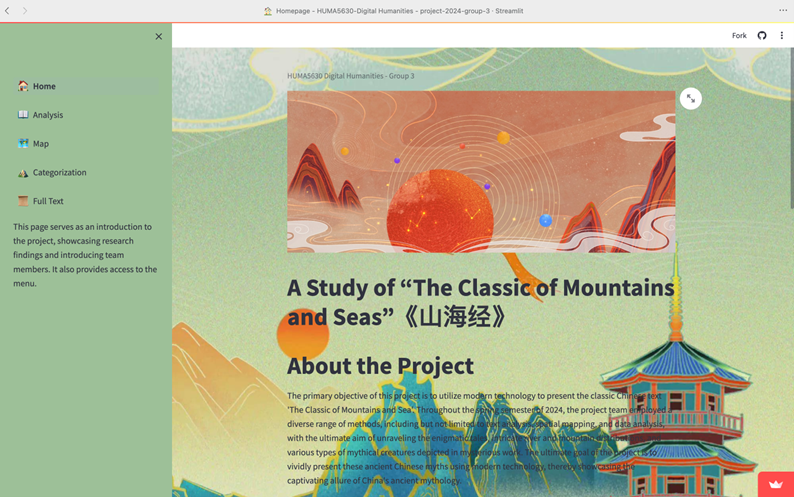
The Classic of Mountains and Seas (Shan Hai Jing) website
Text Analysis and Presentation
At the heart of our project lies a detailed analysis of the original text. We sourced the complete work from the Chinese Text Project website and organized it in an Excel document, categorized by sections, text, location, character, monster, and treasure.
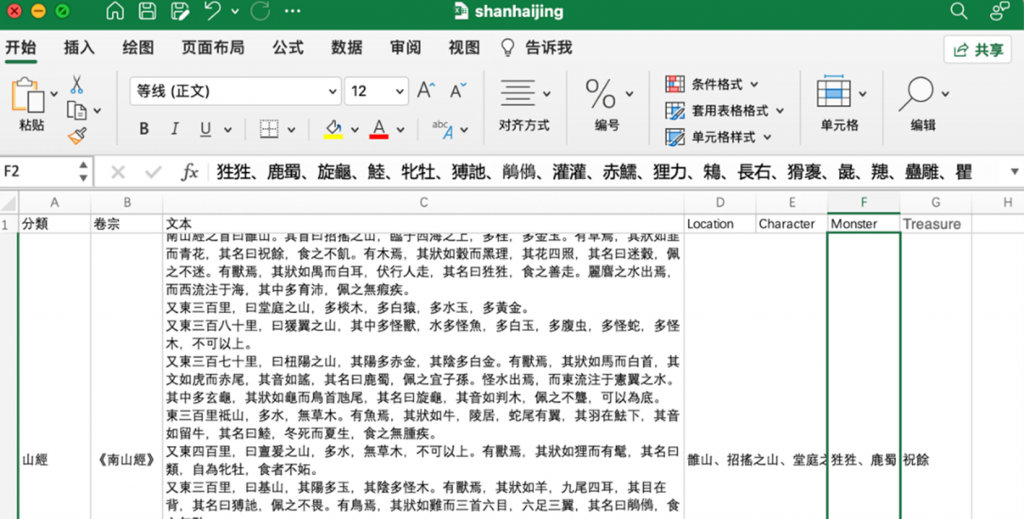
Analyzing full text of Shan Hai Jing in Excel
This analysis formed the foundation for two key features on our website:
- A "Text Analysis" page featuring a mountain-shaped word cloud and annotations that illustrate the text's intricacies.
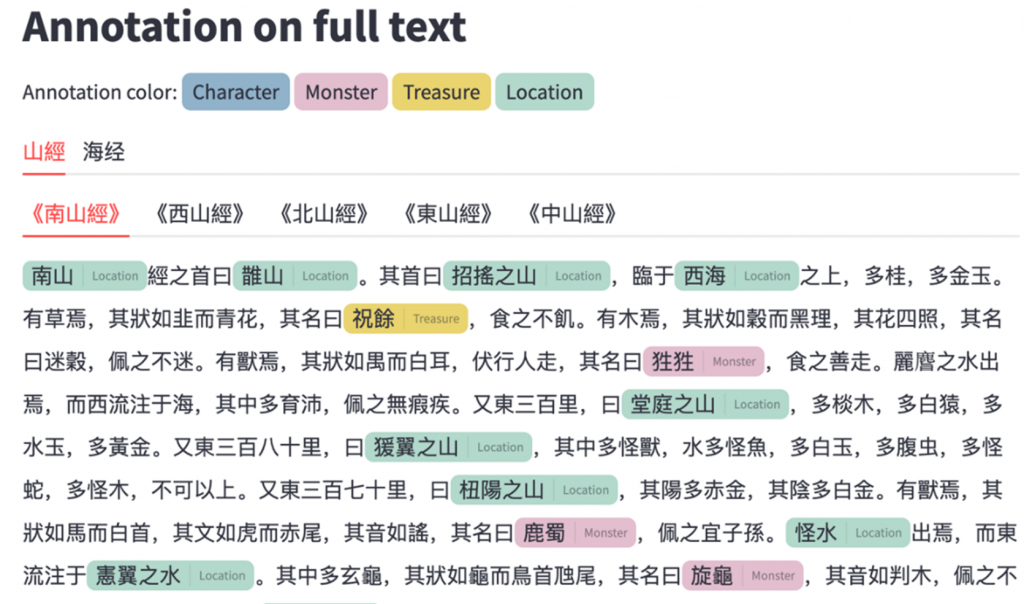
Shan Hai Jing Full Text Annotation
- A "Full Text" page that presents the complete work in a user-friendly format with tabs for easy navigation, accompanied by background music to enrich the reading experience.
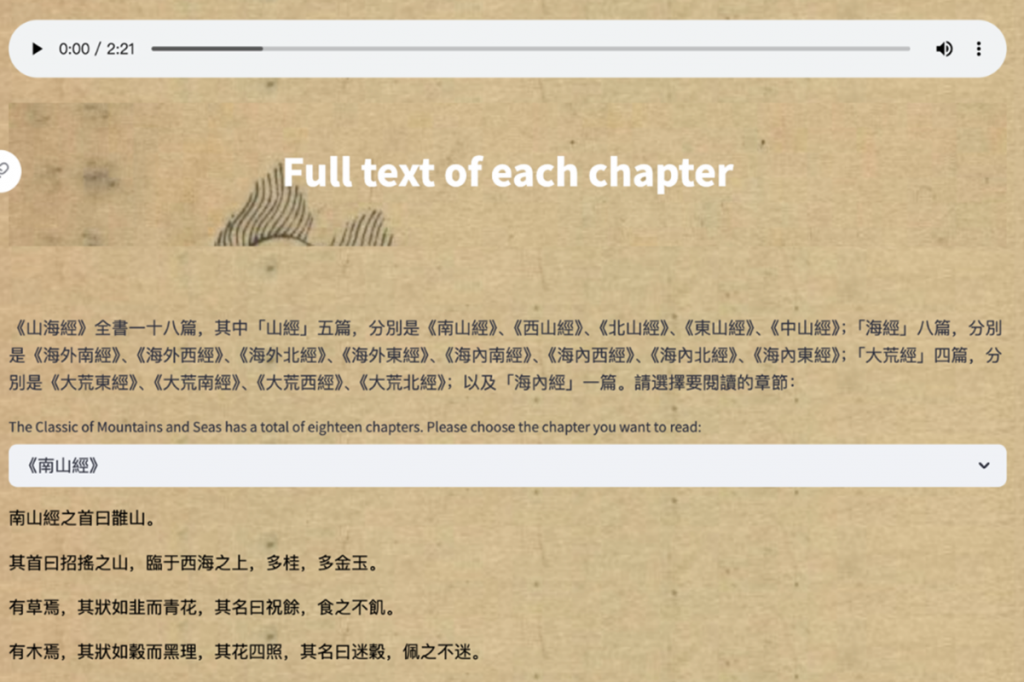
Shan Hai Jing Full Text Reader
Mapping Ancient Geographies
One of the most intriguing aspects of Shan Hai Jing is its geographical descriptions. We tackled the challenge of correlating these ancient accounts with modern maps. After finding an ideal map of the classic, we uploaded it to Map Warper and added corresponding control points to both the historical and modern maps.
We used Python to present the findings. Initially, we attempted to overlay localized locations from Shan Hai Jing onto a modern map. However, to avoid reducing the clarity of the images due to the very often inaccurate nature of ancient geographical descriptions, we decided on a left-to-right comparison between the ancient and modern maps. This visual aid helps readers navigate the complex landscape described in the text, distinguishing between real locations and mythological elements.
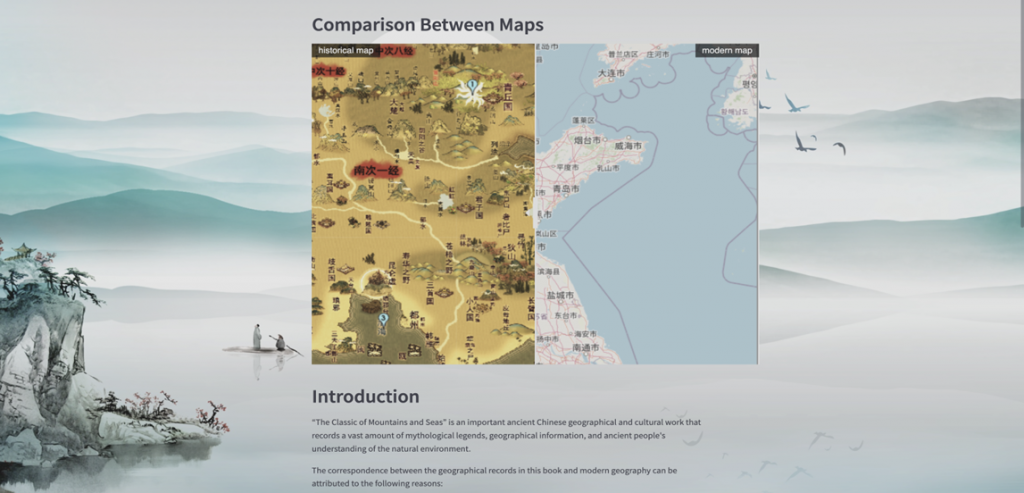
Shan Hai Jing Map Comparison
A Menagerie of Mythical Creatures
Shan Hai Jing is renowned for its vivid descriptions of mythical creatures. Drawing inspiration from "Shan Hai Bai Ling (山海百靈)," a book featuring modern illustrations of these beings, we created a dedicated section showcasing nearly 100 types of these fantastic beings, complete with:
- Detailed illustrations
- Classifications
- Original text excerpts and annotations
- Interactive quizzes to engage visitors
- Visualized distribution data of the creatures
While "Shan Hai Bai Ling" doesn't cover all 400 mythical beings mentioned in the classic, it provides a substantial glimpse into this fantastical bestiary. we hope that future collaborations with AI and artists will help unveil even more of these fascinating creatures.
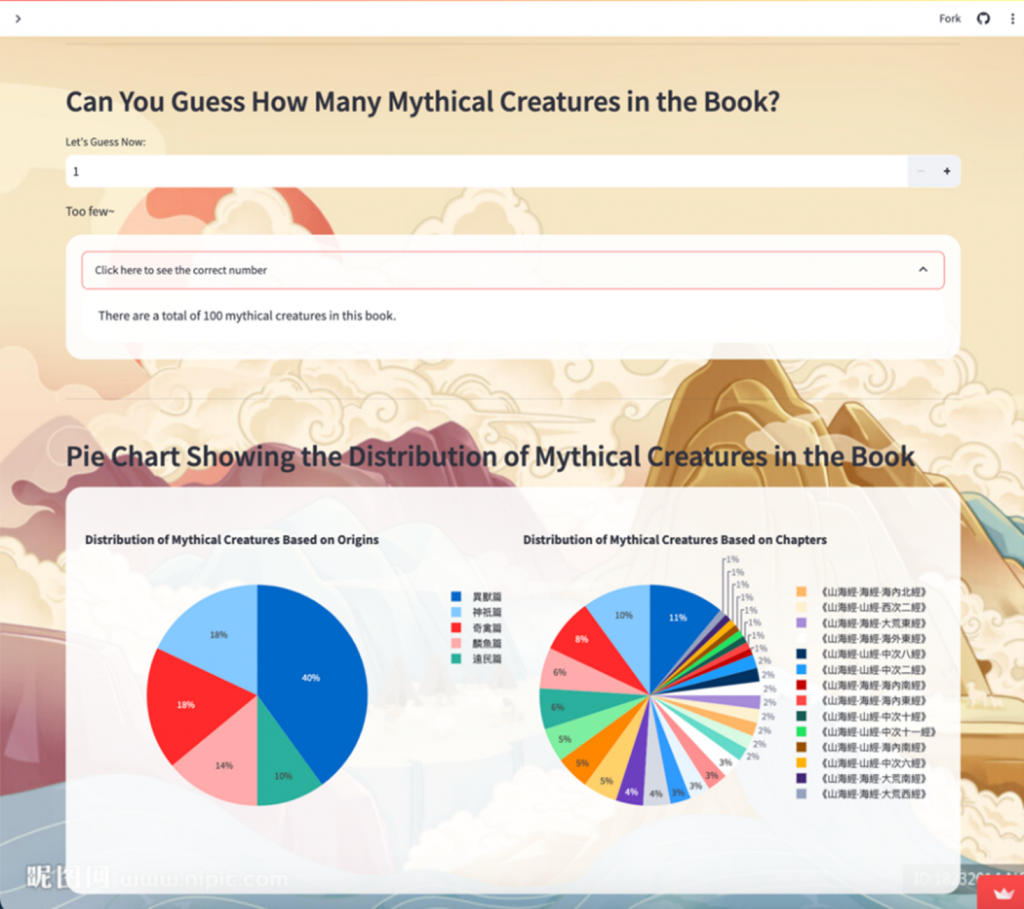
Shan Hai Jing Creature Guess Game
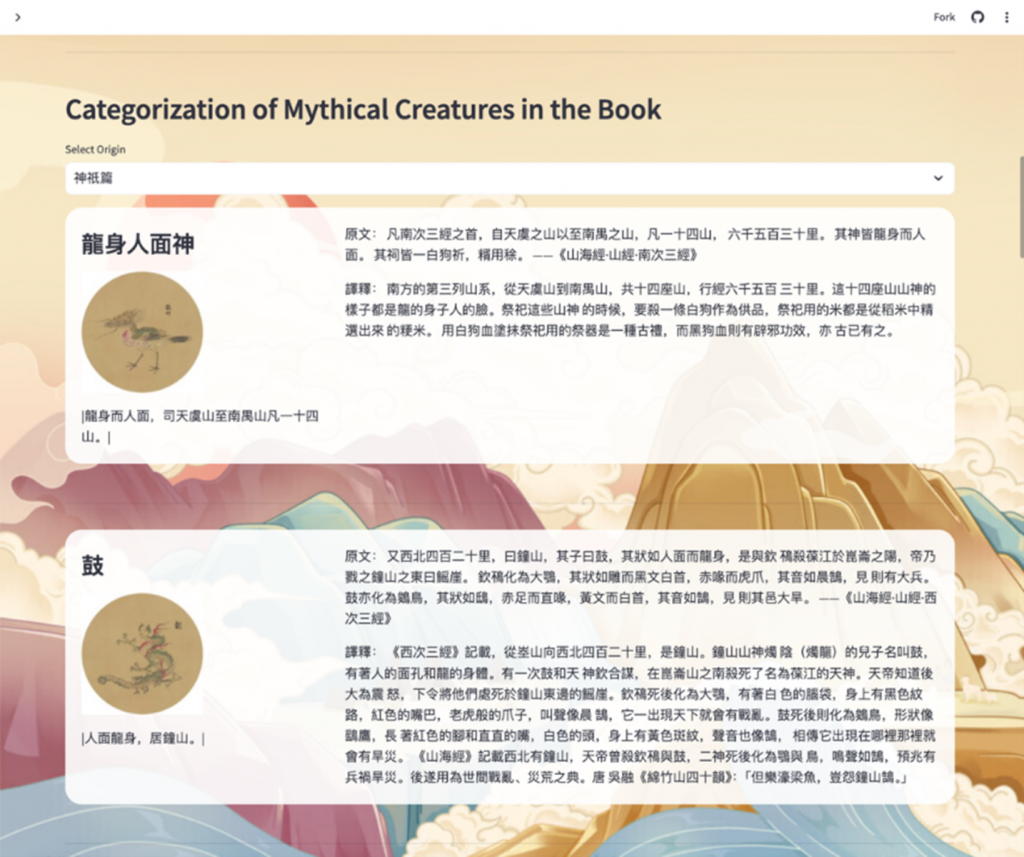
Categorization of creatures in Shan Hai Jing
Explore this Literary Adventure
Our project represents a collaborative effort to make the "Classic of Mountains and Seas" accessible and engaging for a wider audience. By combining research, innovative technology, and our passion for Chinese literature, we invite readers to explore the wonders of this ancient text. Visit our website, immerse yourself in the world of the Shan Hai Jing, and embark on your own journey of discovery!







